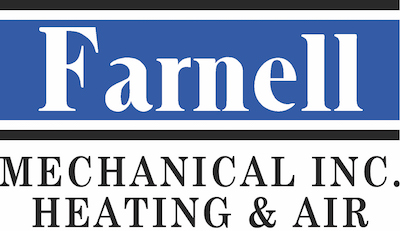Everyone’s always looking to save money on their utility bills, but it turns out there’s a way to do it when you aren’t even home.
The secret is your thermostat. By making the most out of your thermostat, you can structure its daily schedule around your personal preferences. This means establishing various temperature settings for when you’re home, away or even when you’re sleeping.
With a few simple adjustments, you can enjoy comfy temperatures while keeping more money in your pocket. Here are some ways your thermostat can save you money in the summer:
While at Home
Whenever you’re at home, you want to enjoy a comfortable temperature. It’s only natural to want your thermostat lower in the summer if you’re indoors to appreciate the cool air.
But in terms of energy efficiency, the best range for when you’re in your home during the summer is usually between 78 and 80 degrees Fahrenheit. By adjusting things a few degrees, you can stay cool while still lowering your monthly energy bill.
While Away
If you’re setting the temperature for a vacation or other trip away from the house, the majority of homeowners will set the thermostat higher than normal.
If your home is located somewhere a little cooler, you can set the thermostat to temperatures as high as 88 degrees while no one is home before lowering it back to the sweet spot of 78-80 degrees after you return. This way, your air conditioning won’t have to work constantly to cool an empty house.
While Sleeping
When it comes to sleeping in the summer, you want a temperature that’s nice and cool. A great place to start is between 68-72 degrees Fahrenheit. You won’t have to worry about getting too hot or too cold while you’re trying to sleep.
Other Ways to Use Less Energy:
- Install a smart thermostat: Trying a smart thermostat in the summer helps save money on energy costs since it can plan your temperature adjustments according to your lifestyle and home environment. It’ll take care of making changes while you are home or sleeping, before allowing it to get a little warmer when the house is empty. With models like the Lennox iComfort, you are able to adjust settings and schedules through your smartphone, tablet or laptop. Requesting smart thermostat installation in your Auburn and Opelika home is an effortless way to set the correct temperature whether you’re at home or across the country.
- Update your existing HVAC system: A new HVAC system can save money in the long run. By investing in a more energy-efficient system, lower utility bills won’t be far behind since it requires less energy to achieve comfortable temperatures. Air conditioning installation in Auburn and Opelika is a great way to beat the heat in the summer.
- Keep up with AC maintenance: Whether or not you keep up with regular air conditioning maintenance in Auburn and Opelika can have a big impact on your monthly energy use. With regular cleaning of the coils, checking for damage and clearing ventilation of dust and debris, this can help your HVAC system perform better during day-to-day use.. More efficient operation reduces strain on the unit and lowers operational costs, resulting in lower energy usage and subsequently, smaller bills.
- Clean or replace the air filter on a regular basis: A regular schedule for cleaning or replacing the HVAC system’s air filter saves money by helping air flow efficiently through your air conditioner. When filters are old and less effective, air conditioners have to work harder, and the strain can reduce the system’s life span and cause breakdowns.
- Confirm your attic is sufficiently insulated: Insulation is a crucial component for any energy-efficient home, securing the hot air outside and the cool air inside through summer. The North American Insulation Manufacturers Association (NAIMA) suggests that homeowners living in southern climates should install at least 13-14 inches of insulation, while colder climates do better with 16-18 inches.
- Inspect your air ducts: Damage to the ventilation is capable of increasing your energy bills much more than 20 percent, plus it can affect equipment such as your water heater, clothes dryer and other appliances throughout your home. Checking your ductwork for leaks and sealing them can help with both these issues.
- Seal all other leaky spots in your home: Sealing leaky spots in your home with caulk, foam sealant or weather-stripping can help keep it cooler on hot summer days. You should also check for any gaps around windows, doors and even outdoor fixtures. Making time to seal leaks now can help you save a lot over time.
